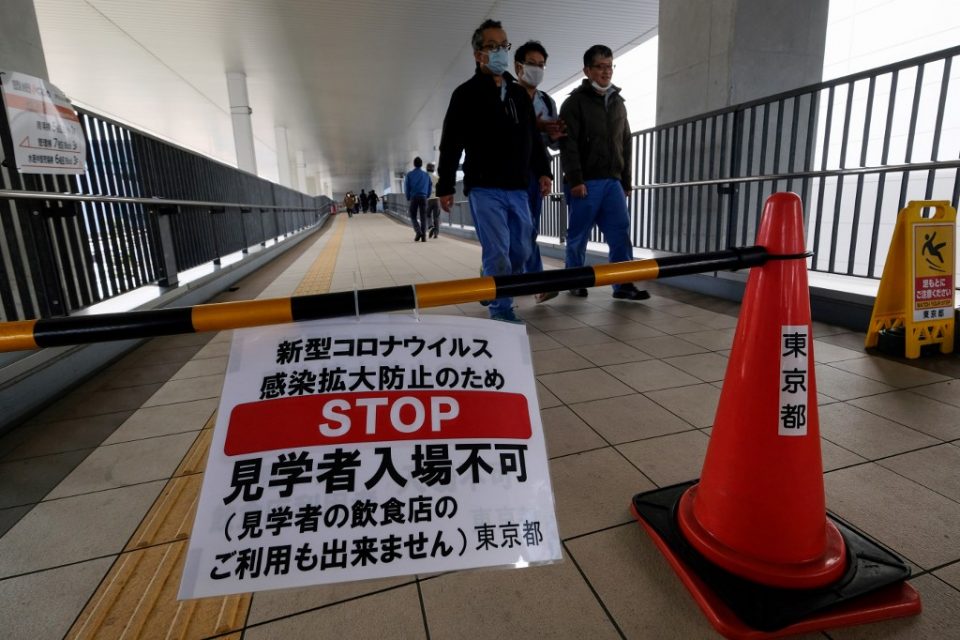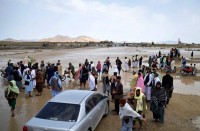
SEOUL, South Korea (AFP) — Seoul threatened to retaliate Friday over what it called Tokyo’s “irrational” plan to quarantine arrivals from South Korea over the coronavirus outbreak, turning the scientific issue into a diplomatic row.
The two countries have close economic ties and are both major US allies, democracies and market economies faced with a rising China and nuclear-armed North Korea.
But their relationship continues to be heavily affected by Japan’s colonial rule of the Korean peninsula from 1910 to 1945 — a dispute that escalated into a trade and security row last year.
Japanese Prime Minister Shinzo Abe on Thursday announced that foreign arrivals who have recently been in China or South Korea would be required to spend 14 days in quarantine.
South Korea has reported more than 6,000 coronavirus cases — the highest total outside China — and around 60 countries and regions have imposed travel bans or quarantine on arrivals from the world’s 12th-largest economy.
But it has taken particular issue with Japan’s restrictions, with the presidential office expressing “strong regrets” and criticizing Tokyo’s outbreak control campaign as “opaque and passive”, in contrast to its own “scientific and transparent” efforts.
South Korea’s National Security Council agreed to consider “necessary measures based on the principle of reciprocity”, the presidential Blue House said in a statement, adding Japan had made its “irrational decision without prior consultations”.
Seoul’s foreign ministry summoned the ambassador to protest.
It also accused Tokyo of ulterior motives, saying in a statement: “We can’t help but question whether Japan has other motives than containing the outbreak.”
The country’s total reported infections — the largest figure outside China, where the virus first emerged — rose to 6,284 on Friday, the Korea Centers for Disease Control and Prevention said.
It announced seven more deaths, taking the toll to 42.
Japan has reported 360 confirmed cases and six deaths from the illness, and a handful of countries have blocked arrivals from it or imposed restrictions.
Around 40 countries and regions have banned entry to foreigners who have recently been in the South, while more than 20 require quarantine, as do several parts of China.
Seoul has not protested to Beijing over those decisions, despite facing domestic criticism itself for not banning all arrivals from China, rather than only those from Hubei, the province at the center of the epidemic.
Japan’s quarantine announcement was already affecting “thousands of South Koreans”, said Park Chul-hyun, a media columnist based in Tokyo.
He canceled a three-day trip to Seoul for fear of having to go into quarantine on his return and criticized the measure as a “pure performance” ahead of the Tokyo Olympics.
Over 90 percent of South Korea’s cases are in the southern city of Daegu and the neighboring North Gyeongsang province.
Most of the country’s infections are linked to the Shincheonji Church of Jesus, a religious sect often condemned as a cult, one of whose members attended at least four services before being diagnosed.
Scores of events — from K-pop concerts to sports seasons — have been canceled or postponed over the contagion, with school and kindergarten breaks extended by three weeks nationwide.
© Agence France-Presse







